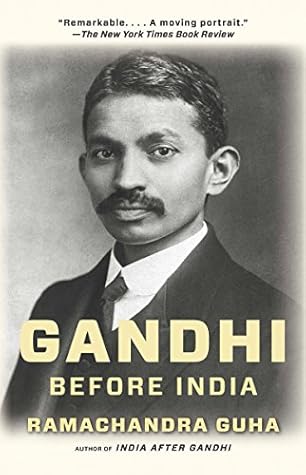Some years later, when set upon by a white mob in Durban, Gandhi chose to remember not his persecutors but the whites who stood by him. Still later, when faced with the rigorous racial exclusivism of the Transvaal, Gandhi sought ‘points of agreement’ with the oppressors, with whom he hoped to live in ‘perfect peace’. Years of harassment and vilification at the hands of Boers and Britons did not deter him from seeking ‘the unity of human nature, whether residing in a brown-skinned or a white-skinned body’.1
Welcome back. Just a moment while we sign you in to your Goodreads account.


